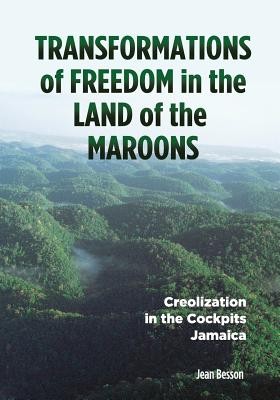
- We will send in 10–14 business days.
- Author: Jean Besson
- Publisher: Ian Randle Publishers
- Year: 2016
- Pages: 367
- ISBN-10: 9766374082
- ISBN-13: 9789766374082
- Format: 17.8 x 25.4 x 2 cm, softcover
- Language: English
- SAVE -10% with code: EXTRA
Transformations of Freedom in the Land of the Maroons (e-book) (used book) | bookbook.eu
Reviews
Description
Despite outstanding histories and ethnographies on maroons, there has been little attempt to draw modern maroons into a comparative perspective with the descendants of emancipated slaves who are the majority of African-Americans today. There is therefore a gap in the comparative exploration of creolization in maroon and non-maroon derivations of African-American slave cultures. Transformations of Freedom in the Land of the Maroons bridges that gap through a comparative ethnography of three post-slavery transnational communities - Accompong, Aberdeen and Maroon Town - that stand fast in the Jamaican Cockpit Country today. The Cockpit Country, so named after the cock-fighting pits introduced by the Spanish to the Americas, with steep mountains and deep valleys, straddles the interior of adjoining parishes in central Jamaica. During slavery these Cockpits served as a refuge for fighting maroons and the provision grounds of plantation slaves. In the twenty-first century Accompong endures as a corporate maroon society; Aberdeen is a village descended from emancipated slaves; and Maroon Town is a community claiming descent from planters, maroons and slaves. Consolidating over 30 years of research and fieldwork in these communities, Jean Besson provides a sweeping yet all-encompassing examination of comparative creolization and the complexities of ethnicity at the maroon/non-maroon interface.
EXTRA 10 % discount with code: EXTRA
The promotion ends in 20d.22:01:52
The discount code is valid when purchasing from 10 €. Discounts do not stack.
- Author: Jean Besson
- Publisher: Ian Randle Publishers
- Year: 2016
- Pages: 367
- ISBN-10: 9766374082
- ISBN-13: 9789766374082
- Format: 17.8 x 25.4 x 2 cm, softcover
- Language: English English
Despite outstanding histories and ethnographies on maroons, there has been little attempt to draw modern maroons into a comparative perspective with the descendants of emancipated slaves who are the majority of African-Americans today. There is therefore a gap in the comparative exploration of creolization in maroon and non-maroon derivations of African-American slave cultures. Transformations of Freedom in the Land of the Maroons bridges that gap through a comparative ethnography of three post-slavery transnational communities - Accompong, Aberdeen and Maroon Town - that stand fast in the Jamaican Cockpit Country today. The Cockpit Country, so named after the cock-fighting pits introduced by the Spanish to the Americas, with steep mountains and deep valleys, straddles the interior of adjoining parishes in central Jamaica. During slavery these Cockpits served as a refuge for fighting maroons and the provision grounds of plantation slaves. In the twenty-first century Accompong endures as a corporate maroon society; Aberdeen is a village descended from emancipated slaves; and Maroon Town is a community claiming descent from planters, maroons and slaves. Consolidating over 30 years of research and fieldwork in these communities, Jean Besson provides a sweeping yet all-encompassing examination of comparative creolization and the complexities of ethnicity at the maroon/non-maroon interface.


Reviews